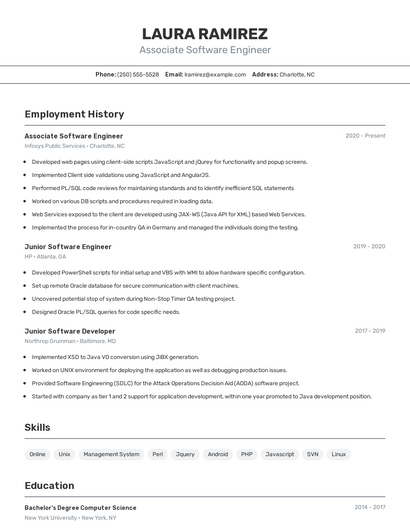
The technology used to improve financial service has become an integral part of society. Fintech's rise has made financial services easier to access, but it raises concerns about consumer protection. Gensler, who was the nominee for the SEC's leadership position, presented a timeline detailing the innovations in financial services. Gensler states that the concept financial technology (or Fintech) is a result of the creation of money.
Fintech is an acronym for "financial tech"
Fintech refers to any technology that is used to provide financial services. Online banking, cryptocurrency, and checking a savings account are all examples of Fintech. It is a vague term and difficult to understand. Word Spy claims that the term Fintech first appeared in mass media on August 11, 1995, when it came to be used by Peter Knight who was editor of Sunday Times. Many believe that the term originated in the banking industry, with the introduction of the SWIFT system for international money transfers.
Fintech is disrupting the traditional financial industry. Fintech has changed the way that consumers purchase coffee and manage their finances. Fintech was originally used to refer to technologies used in the back-end systems of traditional financial institutions. But today, the term can be applied to consumer-facing apps and services. Future fintech applications will include the ability to manage finances, pay bills, buy food, and buy stocks.

It is the integration technology into financial services company offerings
Today's financial companies are on the lookout for new technology in order to improve speed, efficiency, customer service, and overall customer experience. Particularly, companies are seeking to harness the digitalization in banking technology to improve their business processes. These tools enable companies to offer innovative products and services that are based on goods flow monitoring, on-demand liquidity and smart contracts.
Although financial technology may not be new, it has experienced significant improvements over the past decade. Technology's advancements have enabled upstarts to make use of technology to cut costs and improve service delivery. Financial institutions have been looking for ways to integrate technology into their offerings for decades, since the introduction of automated teller machines (ATMs) in the 1960s. Credit cards have revolutionized the way that we pay for our services even though they were invented long before ATMs.
It has made financial services accessible to more people
Digital transformation in financial services has allowed millions of new users to access them, making it possible for them to take part in the global economy. According to a recent World Bank study, 140 countries have made payments online and are now able to manage their money online. This opens up new avenues to financial inclusion but also creates challenges.
Mobile banking is an example of financial tech. These apps enable customers to send and receive money directly from their bank accounts, without the need to visit the bank. You can also deposit checks from your smartphone.

It has created consumer protection concerns
As digital banking becomes more popular, so do consumers' needs for protection. Digital banking requires consumers to provide personal data that financial institutions can use for marketing, identity verification, and credit approval. This is a very useful tool but it can also increase the risk of data breaches and hacking. Recent hacks of credit card companies and banks have demonstrated that these systems are highly vulnerable to hackers. It is important that consumers ask about the potential risks and verify whether the fintech companies dealing with them have committed to protecting the personal data of their clients.
Consumer protection agencies must be flexible enough to accommodate changes in the financial technology industry. Consumers are now exposed to new types and financial products. Regulation has expanded to cover cross-cutting issues such as data security, accessibility, and accessibility. Consumers have also been exposed to more products and services through digitalization. This presents new risks and requires that we review the existing consumer protection laws.
FAQ
How did modern consultancy become possible?
Consultants were originally accountants who could help companies manage their financial affairs. They were known as "accounting consults" because they are highly skilled in the management of financial information. However, this role soon expanded into other areas, such as human resources management.
The French word "to advise" is the origin of the term "consultant". It was first used by businessmen to refer to someone who could give advice about how to run an organisation. Many business owners use the term "consultant" to describe any professional advisor.
How can I become an expert consultant?
First, find a subject you're passionate about. Building relationships is the next step. You need to know what clients want and how they operate. You must also deliver results.
While you don't need to be the best at all things, it is important to be better than others. You need passion for what your do. It's not enough to just say "I want to be a consultant." It is important to believe in yourself and the work you do.
How can I select a consultant?
There are three main things to keep in mind:
-
Experience - How many years of experience is this consultant? Are you a beginner or an expert? Does her resume demonstrate that she has the required skills and knowledge
-
Education - What did this person learn during school? Did he/she study any relevant courses after graduating from high school? Are we able to see evidence of his/her learning through the way he/she writes
-
Personality - Do we like this person? Would we prefer him/her working for us?
-
These questions are used to determine if the candidate is right for us. If the answers to these questions are unclear, it might be worth a first interview to get more information about the candidate.
Are you a qualified consultant?
Learning a lot about a subject and then applying it to your life is the best way to be an expert.
Learn how to be a great consultant by studying now!
It may be difficult to get hired if your degree is not accompanied by relevant work experience. You could still apply if you are able to show that you have the same subject knowledge as the people who were hired.
Employers will always seek out candidates who have real-world experience.
What are some of the advantages to being a Consultant?
Consultants are able to pick when and where they want to work.
This means you can work whenever you like and wherever you wish.
It means that you can change your mind easily without worrying about losing your money.
Finally, you have the ability to control your income levels and establish your own schedule.
Statistics
- Over 50% of consultants get their first consulting client through a referral from their network. (consultingsuccess.com)
- According to statistics from the ONS, the UK has around 300,000 consultants, of which around 63,000 professionals work as management consultants. (consultancy.uk)
- So, if you help your clients increase their sales by 33%, then use a word like “revolution” instead of “increase.” (consultingsuccess.com)
- On average, your program increases the sales team's performance by 33%. (consultingsuccess.com)
- According to IBISWorld, revenues in the consulting industry will exceed $261 billion in 2020. (nerdwallet.com)
External Links
How To
How can I start a consultancy business with no money?
A simple and effective way to get started with your own consultancy business - without any capital investment!
This tutorial will help you learn how to make extra money while working remotely, improve your skills, and achieve success.
Here are some secrets to help you get traffic on demand.
This is called "Targeted Traffic". This is how this method works...
-
You should choose the niche you wish to work in.
-
For solutions on Google, it is important to research the keywords that people use.
-
These keywords are the basis of your content.
-
Post your articles on article directories.
-
Promote your articles using social media.
-
Build relationships with influencers and experts in that niche.
-
You can be featured on these websites and blogs.
-
By sending emails, you can increase your email list.
-
Start making money.